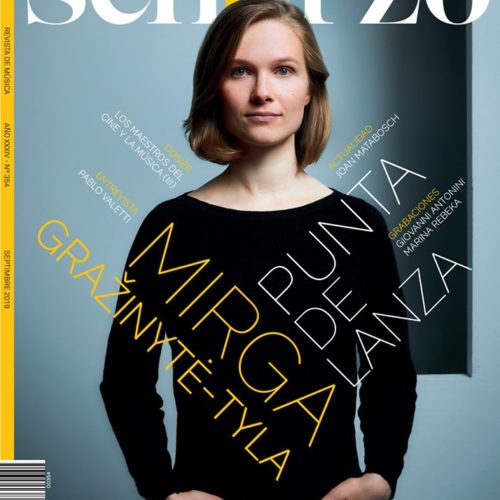In a remarkable interview with the Spanish magazine Scherzo, the sought-after Birmingham conductor Mirga Gražinytė-Tyla gives her view on serious topical issues.
For instance:
– ‘My brother, studying composition in Vilnius, says there are more and more boys and men suffering under gender discrimination. Let us be careful not to forget them while focussing on the goal of giving the appropriate opportunities to girls and women. And let us move towards the inner culture where gender issues will not decide on the questions of happiness.’
– ‘Mieczyslaw Weinberg’s music has already become central repertoire for me. I feel it is connected to a story, a culture and a mentality that, in a way, is closer to me than the German or the British. I mean, the Jewish history of Lithuania is very painful. And we also have in my country Russian and Polish influence, such as the Catholic religion. That sets us apart from Latvia, which is Protestant and more connected to German culture. In the music of Weinberg there are moments of great darkness, with those pedals on the underside, reminiscent of the winters in Lithuania. And then there are others completely luminous that seem to evoke to the month of June in my country, when everything is bathed in an idealistic light. But to recover Weinberg’s music I think is a task and a joy for a lifetime. It has so many incredibly wonderful scores, challenging, enriching, and full of a fascinating creativity. In addition, most are still unknown to me. It is such an immense a catalogue [26 symphonies and 7 operas, apart from concerts, ballets, cantatas and scores for cinema, theatre or circus]. I think we are on the threshold of a discovery similar to that of Bach in the nineteenth and Mahler in the twentieth. In fact, many Weinberg’s works (not all of them, of course) are very related to the catastrophes of the twentieth century and tells or reflects them. It is possible to learn a lot about that specific period of our history listening to his music. But you can also to find thoughts absolutely suitable for today.’
Read the full interview in Scherzo (in Spanish) here. She’s the cover story.

